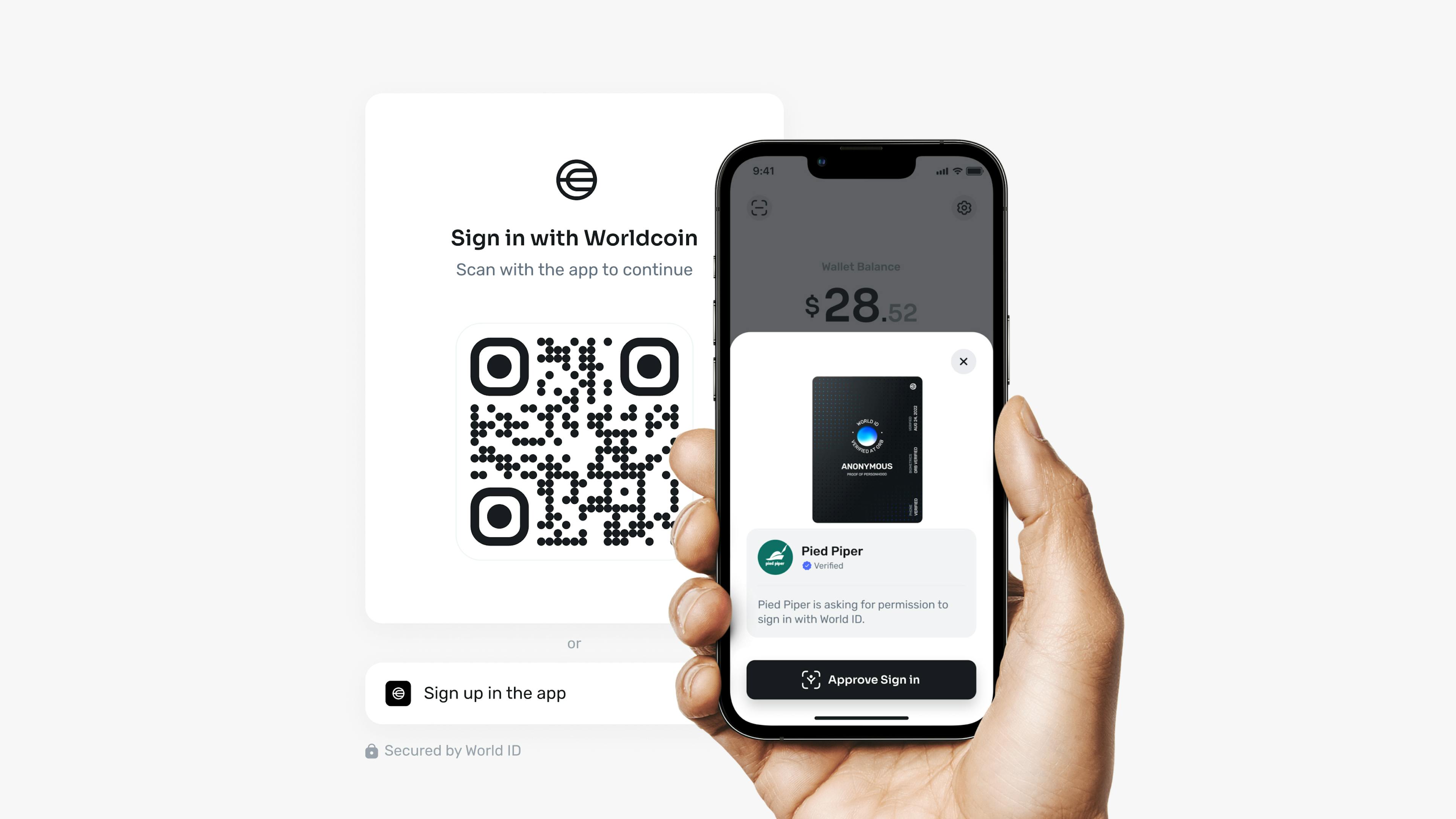In a global first, “Sign in with Worldcoin” is now available on Okta’s Auth0 Marketplace.
The integration leverages World ID’s privacy-preserving digital identity protocol, bringing together millions of people who have already verified their World ID with tens of thousands of applications and online services that use Auth0 for user authentication.
The benefits of the integration are twofold: builders of online apps and services now have a powerful solution for verifying users are human while protecting against bots. At the same time, individuals can maintain their privacy across apps and services while avoiding exposing unnecessary personal information.
Here’s more about how the integration works, and why it matters.
How “Sign in with Worldcoin” works on Auth0
“Sign in with Worldcoin” is a social login integration designed to simplify registrations and logins for users, applications and developers while preserving user privacy.
To sign in to a given app or service, a World ID-verified user simply clicks the “Sign in with Worldcoin” button. When the QR code appears, they can scan it using their World App or other World ID-compatible wallet—and that’s it. Developers receive an app-specific, privacy preserving nullifier hash for persistence between sessions, and a private proof of personhood.
Currently, people can verify their World ID in one of two ways: via phone for functionally limited verification, or at an Orb—the first biometric imaging device developed to prove personhood for the Worldcoin project—for full verification.

For organizations looking to integrate “Sign in with Worldcoin”, the process is equally as easy. After registering their app via the Worldcoin Developer Portal, developers will receive two values. Once these values are entered into the Auth0 dashboard, they simply set their redirect to the URL received from Auth0 and they’re all set.
Installation instructions can be found here.
A new era of privacy for web2 users and developers
“Sign in with Worldcoin” for online apps and services brings significant new benefits to millions of users, developers and applications.
In addition to the simple sign in flow described above, users get to retain more privacy. That’s because, when they sign in with Worldcoin, a zero-knowledge proof (ZKP) is generated on their device attesting their proof of personhood without revealing any unnecessary personal information. New ZKPs are generated for every app a user signs into, meaning accounts on different platforms can’t be traced back to the same user.
For mobile and web apps, World ID verification can help reduce bot traffic by enabling high confidence that users are human. This is particularly important when digital ad fraud, caused primarily by bot traffic, is expected to reach $100 billion worldwide in 2023.
Finally, the simple human verification offered by “Sign in with Worldcoin” means devs can collect only what’s necessary from users to access their service. The integration leverages widely-used authentication standards such as OpenID Connect, demonstrating that the benefits of web3 technology expand to a broad range of identity use cases.
Learn more
Offering a World ID integration to apps and online services through Okta’s Auth0 Marketplace is another way the Worldcoin developer community is making good on its commitment to build financial and identity solutions that work for everyone.
If you’d like to learn more about upcoming integrations and what else is up in the Worldcoin community, sign up for the blog newsletter at the bottom of this page or join the ongoing daily conversations on Twitter/X, Telegram, Discord, YouTube and LinkedIn. You can also learn more about World ID and sign up for the SDK here.
Disclaimer
The above content speaks only as of the date indicated. Further, it is subject to risks, uncertainties and assumptions, and so may be incorrect and may change without notice. A full disclaimer can be found in our Terms of Use and Important User Information can be found on our Risks page.
Related articles
Remainder: World's GKR prover for ML and more
Today we announce the open-sourcing of Remainder (Reasonable Machine Learning Doubly-Efficient Prover), Tools for Humanity's in-house GKR + Hyrax proof system. Remainder enables World's users to run ML models locally over private data and prove that they executed them correctly.
Introducing World ID 4.0 - Request for Comments
The new World ID 4.0 upgrade introduces account abstraction with multi-key support, transforming a World ID from a single secret into an abstract record in a public registry. This increases protocol resilience by allowing the introduction of multiple key support, portability, recovery and improved privacy.